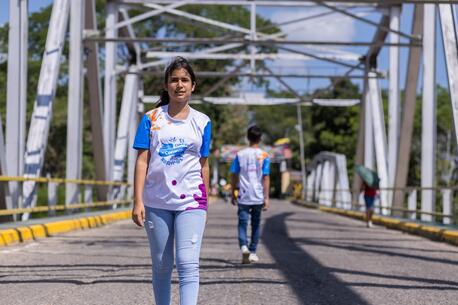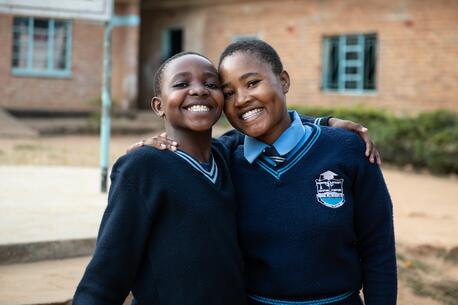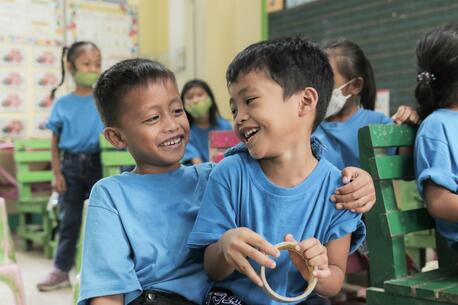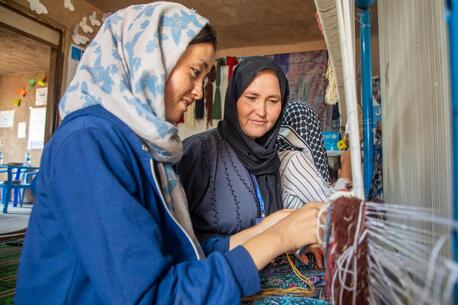
Weaving Carpets, Building Futures: Skills Training for Girls and Women in Afghanistan
A UNICEF-supported vocational training course offers hope and equips Afghan girls and women with practical skills they can use to support themselves and their families.
A path forward for girls and young women in Afghanistan
At a UNICEF-supported safe space for women and girls in Herat Province, western Afghanistan, 100 young women between the ages of 15 and 25 are learning the art of carpet weaving.
The vocational program offers a sense of possibility and hope for a better future for girls and young women who have been cut off from learning after sixth grade since 2021, when the Taliban announced a ban on secondary and higher education for girls, effectively freezing their future.
"We could not go to school. We were distanced from our education and our goals," says carpet weaving trainee Adila Mohamadi. "When we enrolled here, we improved psychologically. We were depressed at home."
VIDEO: Skills training programs offer a second chance at a brighter future
Equipping young people with job skills can help them achieve financial independence
“This training gave me a second chance to still have a dream and work for it," says Ruqia, another young trainee. “When I came to this center, I was reunited with so many of my school classmates and friends. I still like to think of this as our classroom. It helps me cope with the sadness of not being allowed to go to secondary school.”
“The thing I like the most about this training is that it is social, not individual. We all work together like a team and share our knowledge," Ruqia continues. "If this vocational training did not exist, I would have nothing to do. This training means a second chance and a comeback from a distressed and frustrated life.”
When I receive the certificate and carpet loom, I will start a business. So, I will support my family and also create learning opportunities for other girls. — Adila Mohamadi, carpet weaving trainee
The program provides instruction in literacy, carpet weaving and wool spinning. It also offers young women a chance to give back to the girls in their community.
"This skill benefits us both economically and psychologically," says Mohamadi. "When I receive the certificate and carpet loom, I will start a business. So, I will support my family and also create learning opportunities for other girls."
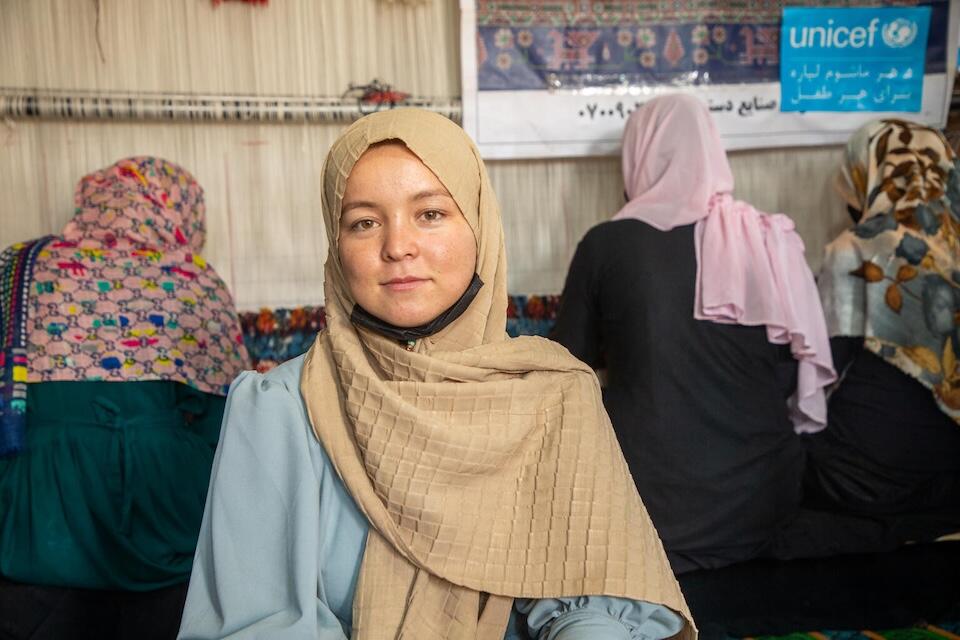
Vocational training gives girls an alternative to early marriage
UNICEF vocational training courses target boys, girls and young women across Afghanistan who face extreme poverty or are at risk of harmful coping mechanisms, such as early marriage or dangerous unaccompanied migration. Selection is based on economic need, prioritizing girls and women from families who face the greatest financial challenges in their communities.
In 2025, UNICEF plans to reach 100,000 women and adolescent girls in Afghanistan with information, services and empowerment skills; 20,000 adolescent girls will receive life skills interventions including transferable, digital and vocational skills through UNICEF-supported programs.
Read more about UNICEF's work in Afghanistan in 2025.
HOW TO HELP
There are many ways to make a difference
War, famine, poverty, natural disasters — threats to the world's children keep coming. But UNICEF won't stop working to keep children healthy and safe.
UNICEF works in over 190 countries and territories — more places than any other children's organization. UNICEF has the world's largest humanitarian warehouse and, when disaster strikes, can get supplies almost anywhere within 72 hours. Constantly innovating, always advocating for a better world for children, UNICEF works to ensure that every child can grow up healthy, educated, protected and respected.
Would you like to help give all children the opportunity to reach their full potential? There are many ways to get involved.



